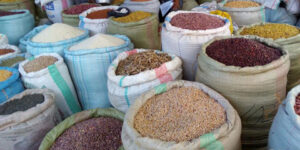Dodoma — DEPUTY Prime Minister and Minister for Energy, Dr Dotto Biteko, reiterated the importance of utilising natural gas as an alternative energy source for Tanzania to mitigate climate change and preserve its precious natural resources.
The Deputy Prime Minister also commended the work of journalists in raising awareness about environmental issues and the importance of sustainable energy practices.
Dr Biteko gave his commendation in Dodoma on Monday when officiating at the 13th Annual meeting of editors under the auspices of the Tanzania Editors Forum (TEF) held in the country’s capital, Dodoma.
He urged members of the Tanzania Editors Forum to continue reporting on these topics and to promote the use of natural gas as a cleaner and more environmentally friendly energy source.
The meeting brought together journalists, editors, and media professionals from across the country to discuss ways to promote environmental conservation and sustainable development through responsible journalism. During his keynote address, Dr Biteko highlighted the importance of using natural gas as a renewable energy source to protect Tanzania’s forests.
He emphasized that deforestation is a critical issue in the country, with many forests being destroyed for fuelwood and other purposes. Dr Biteko commended editors from across the country for a campaign that seeks to emphasize the use of gas for cooking in order to protect the country’s forests.
“I have been attracted by this year’s theme which says: Journalism that insists on the use of gas to protect forests, which seeks to emphasize the use of alternative cooking energy in joint efforts to rescue the country’s forests,” he noted, adding that Tanzania had enough gas to cater for domestic use.
According to the Deputy Prime Minister, President Samia Suluhu Hassan has been advocating the use of alternative energy to avoid the use of charcoal and is a good ambassador of gas use.
“Other countries are using gas in cooking and equally the gas is also used in motor vehicles, that is why in the ministry we have prepared a robust plan to intensify and create awareness on the use of gas in the country,” he added.
“While our President, Dr Samia Suluhu Hassan continues advocating for clean cooking in other countries from across the continent, we in the ministry want to see other countries coming to Tanzania to learn, that is why we already have a plan to distribute LPGs at all levels, in order to discourage the use of firewood,” he stated.
Attendees also had the opportunity to participate in workshops and panel discussions on topics such as climate change, renewable energy, and forest conservation.
The 13th Annual professional meeting of TEF was a successful event that highlighted the critical role of journalists in advocating for environmental protection and sustainable energy practices.
The Deputy Prime Minister’s presence at the meeting underscored the government’s commitment to addressing environmental challenges and promoting the use of natural gas to protect Tanzania’s forests.
Source: allafrica.com












